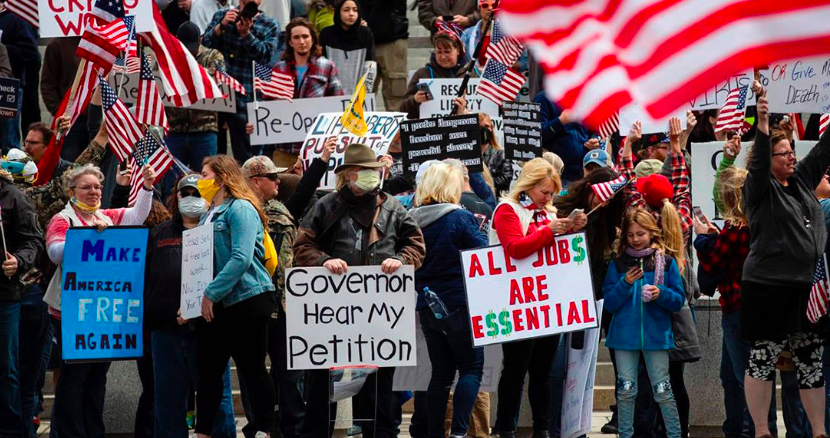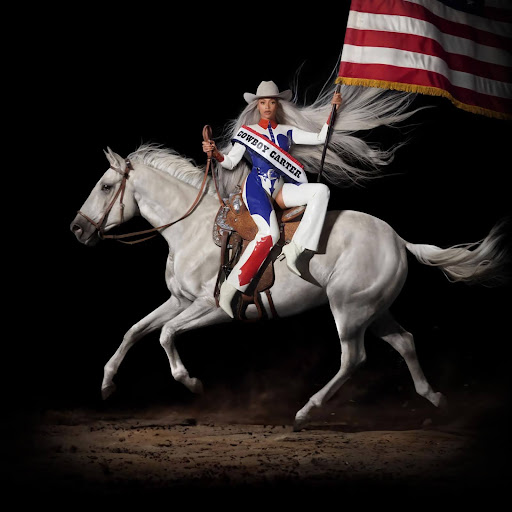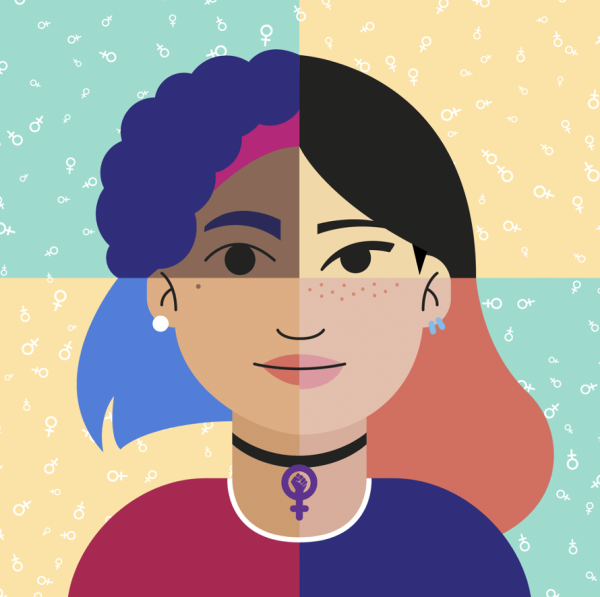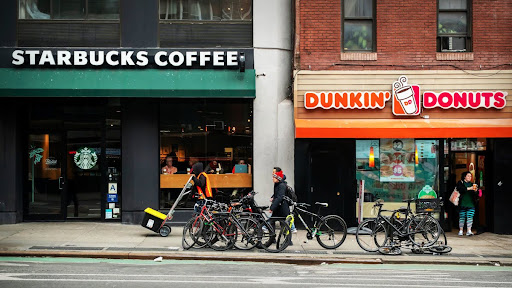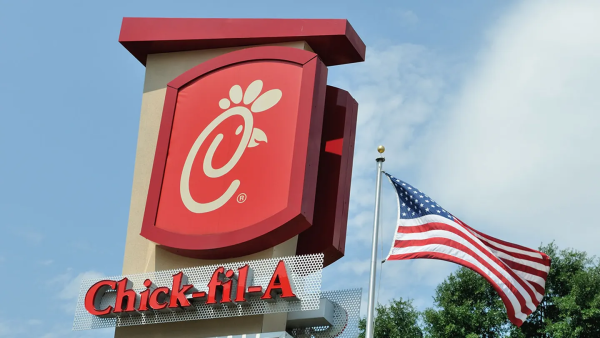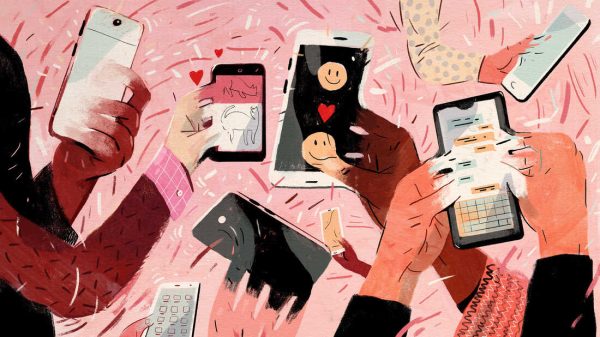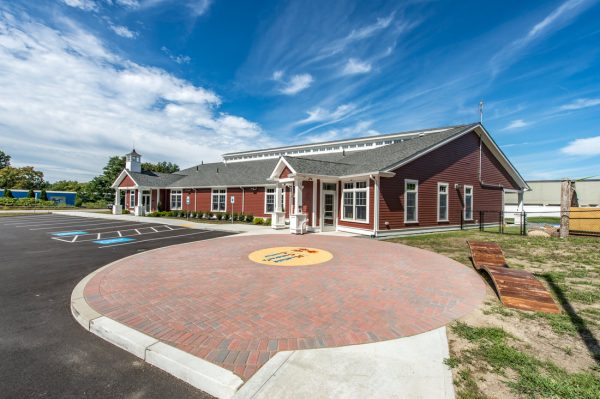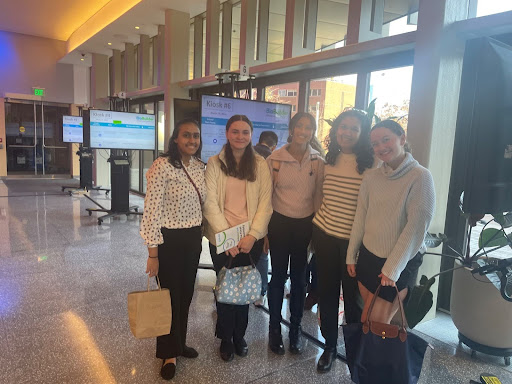Life or Liberty? The USA’s Unique Response to COVID-19 Shutdowns
Protestors gather outside the Pennsylvania State House in Harrisburg to urge the end of stay-at-home orders and the reopening of nonessential businesses.
Editor’s Note: This piece is a continuation of an article by rising Opinions Editor Jenn Uche ’22 found here.
During the last couple weeks, we have seen a surge in protests and riots throughout the United States as more and more people gather to protest state-wide lockdowns, curfews, and other regulations to help limit the spread of COVID-19. To many, these protests make little sense: why would you go, of all places, to a two-thousand-person rally during a pandemic? But for some people, there is a value they prize so highly that it comes before their very lives: personal liberty. And it is this value, above every other, that has fueled the United States since its conception.
After centuries of authoritarian governments and what was known as the “divine right of kings” (the belief that the king had the God-given right to rule the nation as he saw fit), the 17th century brought to popularity an altogether new form of government: representative government based on consent of the governed. Republican governments were based on the novel idea that individuals (white, propertied men anyway) had rights, and that the government should serve to protect these rights. These rights were not given to the people by the government; they were imbued into a person by his very nature. In other words, if you were a human, you had these rights. What were these rights? John Locke, a groundbreaking political philosopher of the time, said that they were the rights to life, liberty, and property. In the Declaration of Independence, Thomas Jefferson changed the last of these to “the pursuit of happiness” to acknowledge people’s rights to engage in activities that they believed would lead them to happiness. From these three primary rights stem many others, such as the right to free speech, privacy, and a just trial.
It is the belief in these fundamental rights of men that fueled the American Revolution and the formation of a new American republican government. These rights shaped what an ideal society looked like for many Americans, especially those with the power and influence to shape the future of the nation. The foundation of these rights also greatly influenced American culture and continues to do so today. In a word, Western culture tends to rest more heavily on ideas of individualism and freedom than those of community and collaboration. People who come from Western countries are more likely to follow the statement “I am” with job titles, personal characteristics, or achievements than with relationships, memberships of certain communities, or other shared identities. People from Eastern countries tend to say the opposite.
Nowhere is this sense of individualism greater than in the United States, where the ideals of autonomy and personal expression are so highly valued. And, in many ways, this emphasis on the individual has done great things for the country. The United States developed from a colony of the greatest empire in the world at the time to one of the most powerful nations in the world, with massive influence on the global economy, politics, and culture. Many of today’s leaders of ingenuity, progress, and entrepreneurship call America home. For many people, especially for many Americans, the United States is the leader of the free world, a champion of individual rights and personal freedom.
But this worship of autonomy has its downsides too, and these are felt especially deeply during this time of crisis. Our governments are asking us to act not for our personal good, but for the good of our communities, our country, and the world as a whole. This request, in many cases, has been called an affront on personal rights to liberty. Why? Because Americans are not often asked to view other people as members of a shared community with common goals. We are taught by our culture to go after what we want. We are taught that it is up to us to look after ourselves first, even at the expense of other people.
Ideas of personal autonomy are so powerful in this country that Americans have begun to conflate legality with morality. If I have the right to do something, there is nothing wrong with me doing it. But this conflation ignores a second question, one that is in some ways more important than the first one: yes, I can do this thing. But should I do it? Yes, it may be my constitutional right to congregate in public areas, to interact with whomever I would like, to continue my education in a physical school, or to make money by doing my job. But right now, during this pandemic, it is (in the majority of cases) morally wrong. It is morally wrong because to our best knowledge, it inflicts damage on the most vulnerable in our communities, and it ignores our duties to our fellow men in favor of our personal preferences.
What these protesters are arguing for is their right to do something that is legal but morally wrong. Right now, our governments are asking us to do something which is at best deeply inconvenient and at worst financially and personally damaging. But, in the grand scheme of things, it is the best solution for the common good. American individualism is important, but right now we need something else: we need a deep sense of community and commitment to those around us. Without it, America suffers deeply.
Anna Bachiochi ’20, Opinions Editor
20abachiochi@montroseschool.org

